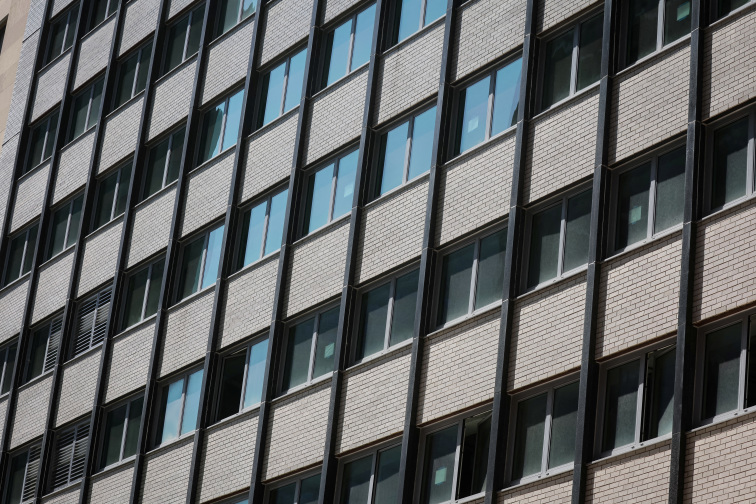Photo: U.S. President Donald Trump. (Photo by Win McNamee/Getty Images)
[People News] Donald Trump's return to the White House has drawn global attention for its potential impact on the increasingly strained U.S.-China relationship. In his January 20 inauguration speech, Trump briefly mentioned China (the CCP) in the context of the Panama Canal. However, several executive orders signed on his first day in office directly or indirectly involved China (the CCP), the most notable being the temporary suspension of the TikTok ban. He warned that if China (the CCP) refuses to allow the U.S. to acquire a 50% stake in TikTok, significant tariffs would be imposed on Chinese imports.
According to Voice of America, contrary to widespread expectations, Trump did not immediately impose tariffs on China (the CCP) as he had promised during his campaign. Instead, he signed a trade-related executive order directing his administration to evaluate various aspects of U.S. trade, including relationships with Mexico, Canada, and China (the CCP). The order also called for an investigation into the causes of the U.S. trade deficit and the identification of unfair trade practices by other countries.
Trump ordered government departments to investigate whether China (the CCP) complied with the Phase One trade deal signed during his first term, to determine Beijing’s adherence to the agreement. This investigation would recommend appropriate actions, including the imposition of tariffs if necessary. The agreement required China (the CCP) to increase its purchase of $200 billion worth of U.S. exports within two years. However, the outbreak of the COVID-19 pandemic in early 2020 prevented the Chinese government from meeting this target.
The executive order also directed the U.S. Trade Representative to evaluate and review reports on “China’s (the CCP’s) practices related to technology transfer, intellectual property, and innovation.” It required a legal review of potential additional tariff adjustments, focusing on industrial supply chains and circumvention through third countries. The review aimed to estimate the costs of any unfair trade practices identified and recommend necessary actions to address related issues.
Additionally, the executive order mandated the U.S. Trade Representative to investigate other behaviors, policies, and practices by China (the CCP) that might be unreasonable, discriminatory, or burdensome to U.S. businesses. The findings would be used to propose legally appropriate responses.
Trump also threatened actions against China (the CCP), Russia, Brazil, and other BRICS nations but did not specify details.
Trump’s decision not to immediately impose tariffs on Chinese (CCP) imports is welcome news for China’s struggling economy, which has been hit hard by a real estate slump, local government debt crises, and weak consumer spending. Otherwise, such tariffs would have dealt a severe blow to an economy already struggling to recover.
However, while signing an executive order to delay the legal ban on TikTok by 75 days, Trump emphasized that if TikTok wants to continue operating in the United States, the U.S. should have the right to acquire a 50% stake in the company. He warned that if China (the CCP) refused to make a deal, it would be considered a “hostile” act, and he was “certain” he could impose tariffs on China (the CCP).
He stated that tariffs could reach as high as 100%, and ultimately Beijing would comply.
“I might not make this deal, or I might. TikTok is worthless, completely worthless. If I don’t approve it, it has to shut down,” Trump said.
“With TikTok, I have the authority to sell it or shut it down. We’ll make a decision... We might also need China’s (the CCP’s) approval, though I’m not sure, but I believe they will agree,” he added.
Clearly, Trump is using the threat of tariffs as a bargaining chip to force the Chinese government to agree to the sale of TikTok by its parent company, ByteDance. The Chinese government has explicitly stated that it will not allow TikTok to be sold to a foreign company.
Meanwhile, when signing an executive order to withdraw from the Paris Climate Agreement, Trump stated that China (the CCP) contributes to pollution without facing consequences, and he would not sacrifice the U.S. economy for this agreement.
While signing the executive order to withdraw from the World Health Organization (WHO), Trump explained that the U.S. had withdrawn in 2020 due to the WHO’s mishandling of the COVID-19 pandemic originating from Wuhan, China, its failure to implement critical reforms, and its inability to prove immunity to undue political influence. Additionally, the WHO continued to demand disproportionately high financial contributions from the U.S., which far exceeded those of other countries. China, with its population of 1.4 billion, contributed nearly 90% less than the U.S.
In his speech, Trump also mentioned that by January 2029, before the end of his term, the U.S. would send humans to Mars, potentially intensifying the space race between the U.S. and China.











News magazine bootstrap themes!
I like this themes, fast loading and look profesional
Thank you Carlos!
You're welcome!
Please support me with give positive rating!
Yes Sure!